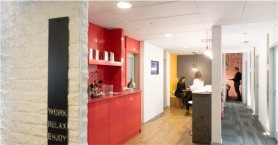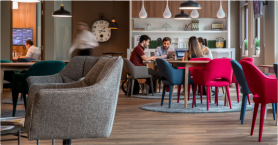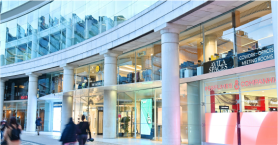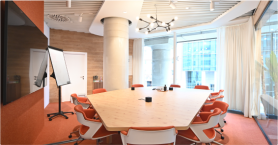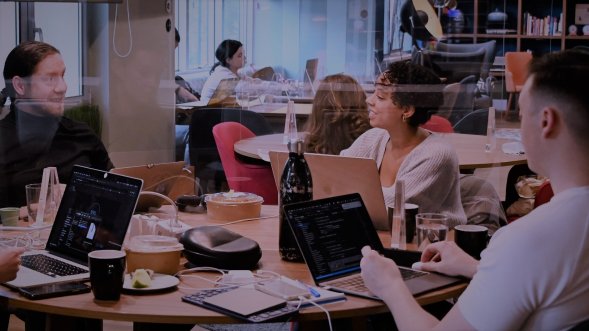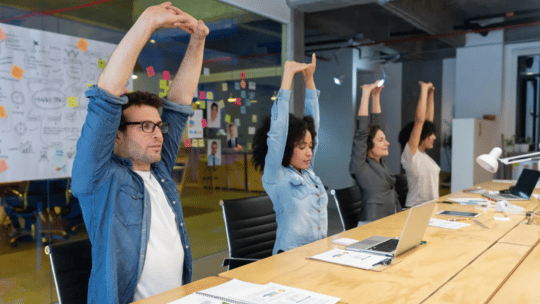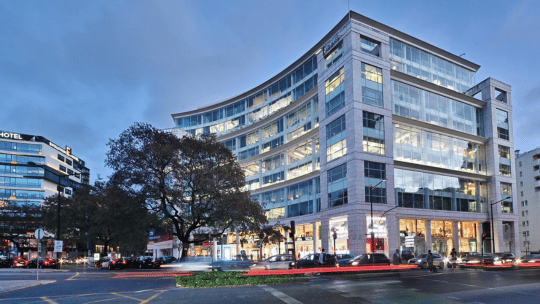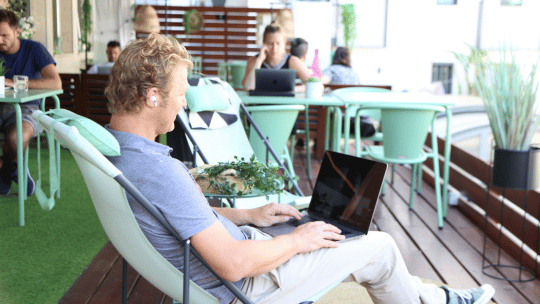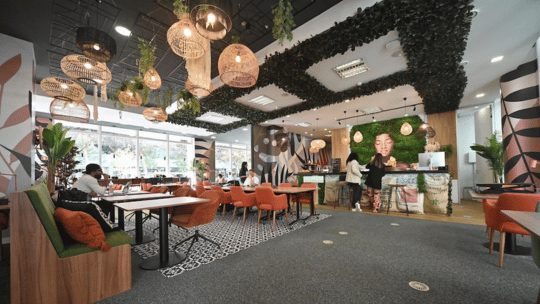|
Every Industrial Revolution marks a transition point in humankind history. 250 years after the first Industrial Revolution, which marked the transition from artisanal production to machine production, the fourth Industrial Revolution introduces radical transformations in human life through new technologies, in diverse areas: from the economy, industry, agriculture, transportation to employment and the so-called "smart cities". The pandemic emerged while the fourth Industrial Revolution was starting to develop and we can acknowledge that it only helped accelerate the changes that were already happening on the organization working models. Specialists in different areas guarantee that, within a year, millions of companies were forced to rethink their working spaces, taking measures that, in a normal situation, would only happen in ten years. The BBC published a fascinating report that showed the strong tendency of companies to promote the return to their employees' offices, given that this return will not be "full time" for thousands of companies. In practice, we are talking about a win-win equation: companies have the opportunity to reduce costs, employees will be able to work from home part of the time and the environment will be better protected through lower gas emissions for the atmosphere. Some of the tech giants who claimed with pomp and circumstance a year ago that employees could opt for telecommuting for life are now backing down, after realizing that 100% remote working after all has negative consequences for the company's culture, it is essential to promote face-to-face contact between work teams and cultivate affective relationships between employees and maintain the feeling of belonging to the workplace. Even though this workplace is a Cowork space where people can meet once a week and carry out work sessions with the comfort and privacy conditions they often cannot have at home, having the opportunity to contact other companies, networking, and exploring new businesses. Once again, history repeats itself during periods of crisis: threats quickly become opportunities. It seems that on the post-Covid people and companies will be more conscious about the environmental issues and personal and work relationships will be more valued. Quality of life will also improve because of the reduction of commutes and better mobility within cities, since a great part of the workforce will be geographically dispersed. The "satellite office" will be a reality in the near future and the concept of the "flex-office" will be a deal-breaker to attract and retain talent, in a time where many employees can’t picture themselves working in an office building every day from 9 to 6, preferring to do it somewhere else where they feel more productive… and happier! |
Other articles
In today?s competitive job market, attracting top talent is only half the battle. Retaining...
The Re:Space is a project idea that aims to transform underutilized outdoor spaces into...
Avila Spaces has just launched a new initiative that promises to energize the business ecosystem...
Coming back to the office after a vacation can feel like a shock to the system. Let's...
Holidays are meant to be a time of rest, joy, and reconnection?with ourselves, others, and the...
We currently live in a reality where acceleration is a constant. More and more, we seek...
In the modern, fast-paced workplace, productivity often feels like a race against time....
The second edition of Remote Week in Fundão has been confirmed. In 2025, a new group of...
Avila Spaces has been awarded the prestigious ?Cinco Estrelas Regiões Award? in the ?Coworking...
Avila Spaces announces its sponsorship of Pedro ?Figgy? Figueiredo, one of Portugal's most...
After its initial launch aiming to provide information on the Web Summit 2024 and Lisbon's...
Avila Spaces has introduced, in collaboration with Elbo Pte, an open-access virtual assistant,...
